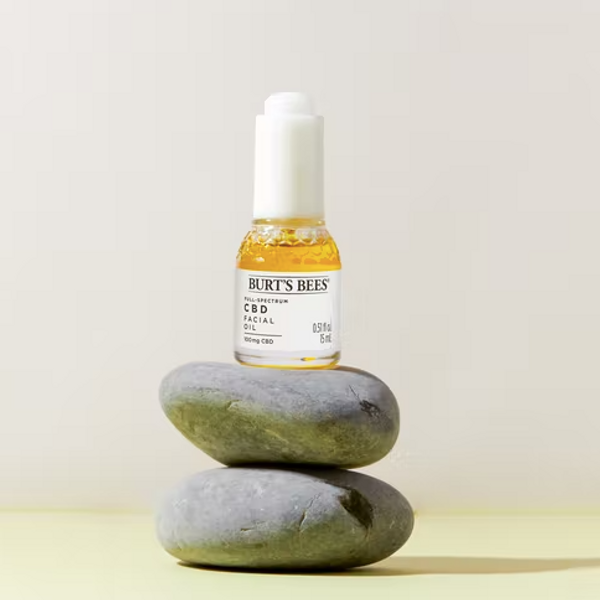Here at FindKarma, we are all about living a healthy lifestyle, which we firmly believe is centered around wellness and the drive to continually work on and improve yourself. One of the most important aspects to maintaining this type of life is proper education, without which, it can be hard to know if you are on the right path and making the right decisions.
Today, we are going to breakdown the concept of herbal remedies, and more importantly, answer the most critical questions on the subject, including whether or not they work for common ailments like anxiety. By the end of this article, you should have a solid foundation and feel comfortable beginning your journey into the world of plant-based, herbal medicine.
What Are Herbal Remedies?
Herbal remedies are based on the idea that many naturally occurring plants can be used as medicine, a practice that has been observed by people all over the world since the beginning of time.
Some people choose to treat serious illness this way, as they do not feel safe consuming the types of chemicals used to make the normal medication that doctors would prescribe. These remedies are also frequently used as preventive medicine as well.
One of the biggest issues regarding these types of products is regulation. Unlike traditional prescription medication, there is hardly any regulation or oversight when it comes to herbal remedies.
The market is flooded with 'all-natural' and herbal remedies for every ailment under the sun. The question on everyone's mind is do they actually work?
Things To Keep In Mind!
- Herbal remedies are considered to be a type of dietary supplement
- Not every ingredient in an herbal remedy is listed on the label, many have also been found to contain contaminants.
- Herbal remedies may NOT work as advertised
- Just because an herbal remedy worked for someone you know, doesn't guarantee that it will work for you! Every body is different and reacts differently to substances you put in it.
- Herbal remedies are not required by law to be tested, and as a result, are not.
- There is no regulation for labels. You may have no idea how much of an ingredient is in the product you purchased, or it may not list any at all.

St. John's Wort - this herbal remedy has been used to combat the symptoms of depression, from mild to moderate cases. Unfortunately, it has been found to cause moderate side effects including anxiety and an upset stomach. St. John's wort also has been found to interact negatively with birth control pills and antidepressants.

Yohimbe Bark - One of the most popular treatments for erectile dysfunction in the herbal remedy world. However, there are so many downsides to this herb, it may not be worth the risk. The FDA has concluded that taking Yohimbe bark over a long period of time, or in high doses, can be very dangerous. Yohimbe bark has been known to cause anxiety, an increased heart rate =, and in some cases, extremely high blood pressure.

Tips On How To Choose The Right Remedy and Use It Safely!
- Don't use them prior to any surgical procedure, as they can have dangerous interactions with pre/post surgery medication.
- Avoid herbal remedies if you are planning to get pregnant, are currently pregnant, or are at any stage in the breastfeeding process.
- Always consult with your primary care physician before attempting to incorporate herbal remedies into your daily routine, especially if you are currently being prescribed traditional medication.
- Children should not take herbal remedies, unless specifically instructed by a doctor. Similarly, if you are over the age of 65, you should talk to your physician before use.
- Use discretion and research before buying any herbal remedies, wether in store or online. There are certain things to look out for on the labels that can indicate a safe product to use. Any product with "USP Verified", or "ConsumerLab.com Approved Quality," is an indication that it has been tested for quality and purity.
- Anecdotes are not a substitute for quality control. Many herbal remedies are promoted using testimonials from supposed real life "customers", and while they may be real, just because an herb works for one person, it is not guarantee that it will work for you.
- Most importantly, how is the product advertised? Does the company make claims of a "miracle", or claims that seem way over the top? The old adage definitely applies to herbal remedies, "if it's too good to be true, it usually is."

Lavender - Many studies have shown that lavender can have a calming effect. One particular study, produced a pill made from lavender, and tested it as a substitute for narcotic anti-anxiety medication. Another popular way to reap the benefits that lavender has to offer is through vapor. By using a vaporizer you can sit in a room and inhale the scents which will have a similar impact as taking it orally in a capsule.

Valerian - This is mostly used as a sleep aid, and for anyone that is battling insomnia. However, in smaller doses it could definitely help take the edge off. One of the most popular ways to consume valerian is in capsule. Reports show that valerian has a bad taste and makes it undesirable as a tea.

Passionflower - Found, in some cases, to reduce stress and anxiety, passionflower was used as an alternate to anti-anxiety medication in Germany. Studies conducted in Germany provided positive results for the use of passionflower. It is advised not to mix passionflower with any prescription sleep aids, as it could cause a dangerous amount of sedation.

Lemon Balm - According to WebMD, lemon balm is from the mint family and is considered a perennial herb. The leaves are used to make the medicine and most often is used in conjunction with other herbs and supplements. There are reports that show lemon balm has been used for more than 2,000 years. However, not many studies have been done and there really is no evidence to support its use as an anxiety relief herb.

CBD - While there still haven't been many studies conducted as to the effectiveness of CBD as a treatment for anxiety, many people use it for this purpose everyday. There is a ton of anecdotal evidence showing it as a fantastic relaxant, and something that can help reduce stress and produce a calm state. Hemp-derived CBD is non psychoactive, meaning it does not get you high like its counterpart, THC

If you are against using harmful prescription medication to treat your anxiety, you may find relief in one of the herbal remedies listed above. However, in the event that none of them work for you (which is always a possibility when dealing with supplements and the human body), you can always try some of the more popular ways to reduce stress and anxiety in your life.
One of the most sure-fire ways to calm anxiety is by doing a quick bit of exercise. Whether that means going for a run, or a brisk walk around the neighborhood, exercise releases endorphins that make you feel good and raise your spirits.
Another neat little trick......try holding your breath for a long 3 count. Some experts believe that when you feel anxiety starting to build (if you suffer from anxiety, then you know what I am talking about here), you should try holding your breath and counting to three. The theory here is that you could not be anxious and holding your breath at the same time. As someone who suffers from anxiety regularly, I actually tried this one and found that it worked rather quickly, but did not take it away completely. For now, I will be sticking to CBD oil, which works the best for me when it comes to relieving anxiety and reducing stress in my life on a daily basis.
So, to sum up everything that we covered in this article, there are a few important things that you need to takeaway from this read, if nothing else.
- Do your research. There is a lot of garbage on the market and you need to know how to find the good stuff. Feel free to refer back to this article if you are having difficulty remembering what particular remedies work best.
- Talk to your doctor. This is a really important one. Make sure you discuss any herbal remedies you decide to start taking with your doctor to make sure that it is safe for you, especially if you are taking any prescription medication that could potentially interact with one of the herbs.
- Every body is different. Just because an herbal remedy worked for a friend of yours, or you read a story about a miracle that occurred to someone that took a specific herb, there is no guarantee that it will work for you. The human body is complex and every person can have a different experience using the same supplement or medication.
- Breathe. Don't forget to breathe. Often when you are experiencing anxiety, you will begin to hyperventilate or deviate from your normal breathing patterns. By stopping and taking the time to slow down and take a deep breath, you can give your body a chance to reset and catch itself before you have a full on panic attack. This is something that you should do at least once everyday to maintain proper mental health.








